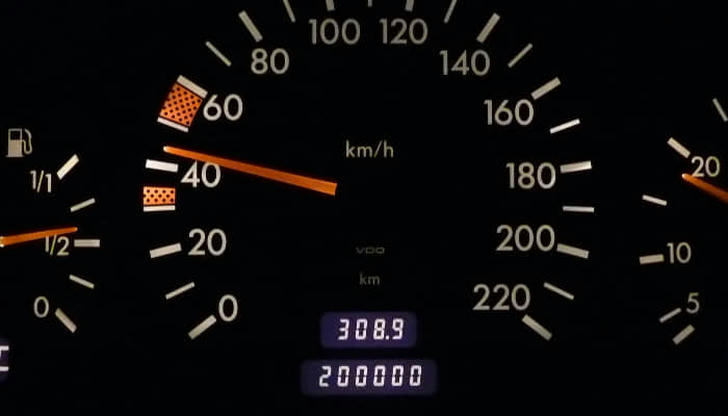3 Common Used Car Buying Myths You Should Know

Used cars are often seen as the most cost-effective option, with good quality at a reasonable price. However, why do most people end up losing rather than gaining when buying used cars? This may be due to some myths about used cars that many people hold. This article summarizes three of the most common myths, hoping to remind guys who are considering buying a used car. Keep reading!

Myth 1: The lower the mileage, the better.
The mileage of a car is closely related to the lifespan of its components and is an important indicator of the value of a used car. However, when purchasing a used car, we cannot simply assume that lower mileage is always better for the following reasons:
Reason 1: From a cost-effectiveness perspective, lower mileage often means a higher price, which may not be budget-friendly.
A nearly new car with less than 10,000 miles is often priced much higher than a used car with around 50,000 miles over three years. However, a used car with 50,000 to 60,000 miles may still have excellent mechanical performance, without affecting the experience, and it may have a significant price advantage, making it more cost-effective.
Reason 2: While pursuing lower mileage is reasonable, we should also be wary of cars with tampered odometers.
For a typical family car, driving 10,000 to 20,000 miles per year is considered normal. Even driving around 30,000 miles per year is still within a reasonable range. Based on this logic, a used car with a mileage of around several hundred thousand kilometers after seven years is deemed normal, provided that it has been regularly maintained and has not been involved in any accidents.
However, there is a phenomenon in the used car market where vehicles older than seven years are generally accepted, but if their mileage exceeds 100,000 kilometers, they are often met with hesitation. This phenomenon contributes significantly to the prevalence of odometer tampering.
Of course, there may be used cars that have only been driven 10,000 miles in three years, but their prices will naturally be higher than those of the same year models. If a car has low mileage and a low price, it is very likely that the odometer has been tampered with.
Therefore, when purchasing a used car, it is important to consider the mileage rationally. You can divide the total mileage by the number of years to calculate the average annual mileage. If the average annual mileage is less than 5,000 kilometers, you should pay more attention, and it is best to have a professional assess the car's condition.
Reason 3: Low mileage doesn't always mean good condition.
Some cars may have low mileage due to prolonged periods of inactivity. However, leaving a vehicle stationary for extended periods can lead to damages comparable to normal usage. These damages may include premature battery failure, tire deformation, deterioration of various fluids, oil seal aging and leakage, as well as chassis rusting.
Another scenario involves used cars with low mileage being offered at a lower price. In such cases, it's essential to consider whether the vehicle has been flooded, involved in accidents, or if there are issues with its documentation.

Myth 2: Cheaper prices are better.
The price of a used car, like any other commodity, is influenced by market conditions. Blindly pursuing low prices often results in the purchase of subpar used cars.
When selecting a used car, it's advisable to consider your budget realistically. Here are some suggestions:
Firstly, if your budget allows, it's recommended to consider nearly new cars that are less than three years old. Generally, these cars still come with the original factory warranty, providing a safety net in case of any issues during ownership. Additionally, the driving experience of these nearly new cars is comparable to that of brand-new cars. Compared to purchasing a new car, buying nearly new not only saves a considerable amount of money but also exempts you from paying purchase tax.
If you aim to strike a balance between durability and value for money, consider used cars that are 4-6 years old. For traditional fuel-powered cars, vehicles in this age range are in their prime and can easily serve for another four to five years without major issues.
If your budget is tighter and you're looking for a car for commuting, practice, or as a temporary solution, consider a used car that is 6-8 years old. With some care and maintenance after purchase, driving it for a few more years shouldn't be a problem, and you won't incur significant losses if you decide to sell it later.
Be cautious when dealing with used cars that are over 10 years old. While these cars may come with a lower price tag, their overall performance has likely declined. Issues such as engine leaks, worn-out parts needing replacement, and overall deterioration are common. While they may be more affordable upfront, they could negatively impact your driving experience and may be difficult to sell later.

Myth 3: Private sellers are more reliable than used car dealers.
When it comes to buying and selling used cars, some people caution against trusting used car dealers or intermediaries, believing that dealing with private sellers or acquaintances is safer. However, this notion is not always accurate.
Purchasing a used car from a private seller may present several issues:
Firstly, private sellers do not necessarily offer better prices than professional dealers or organizations. On one hand, used car dealers have a good grasp of the used car market, and they typically reserve a profit margin when acquiring used vehicles. They aim to expedite cash flow and, therefore, do not tend to overprice their inventory. On the other hand, private sellers often perceive their vehicles to be of high quality, leading them to set higher prices to ensure a satisfactory sale. If the price is set too low, it is common for dealers to quickly acquire the vehicle from the individual seller.
Secondly, it's challenging to verify whether the seller is genuinely an individual. Some car dealers may operate under the guise of private sellers, making it difficult to distinguish between genuine and fraudulent transactions.
Lastly, buying from a private individual typically offers no after-sales guarantee. If the seller, acting as an individual, sells you a faulty car and then disappears, it becomes challenging to seek recourse. Conversely, reputable used car dealers and professional organizations prioritize their reputation and provide more assurance to buyers.
Summary
Here are three myths you might believe when buying a used car. Understanding the reasons behind these myths can help you avoid unnecessary trouble. Wish you success in finding the used car of your dreams.
